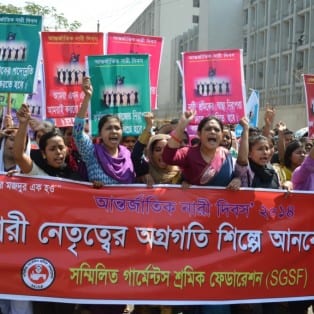The Solidarity Center, as part of the global labor movement, is proud to closely work with trade unions, civil society organizations, academic institutions, progressive private foundations, labor-friendly businesses, governments and dozens of generous individuals to...

The Solidarity Center assists workers in the informal economy, such as market vendors in Zimbabwe, come together to assert their rights and raise living standards. Credit: ZCIEA
COVID-19: Bangladesh Garment Workers Stand Up for Rights
The COVID-19 crisis is especially devastating for the 50 million workers who make clothes, shoes and textiles in factories around the world. With declining sales, corporate retailers are canceling orders and factories are laying off workers, most without pay. Those...
Worker Rights Experts Field COVID-19 Queries in Ukraine
In Ukraine, as workers face employer efforts to shortchange their pay, lay them off or take other adverse actions during the COVID-19 crisis, many are turning to Labor Initiatives, a Solidarity Center-supported Ukrainian NGO that provides legal assistance to workers....
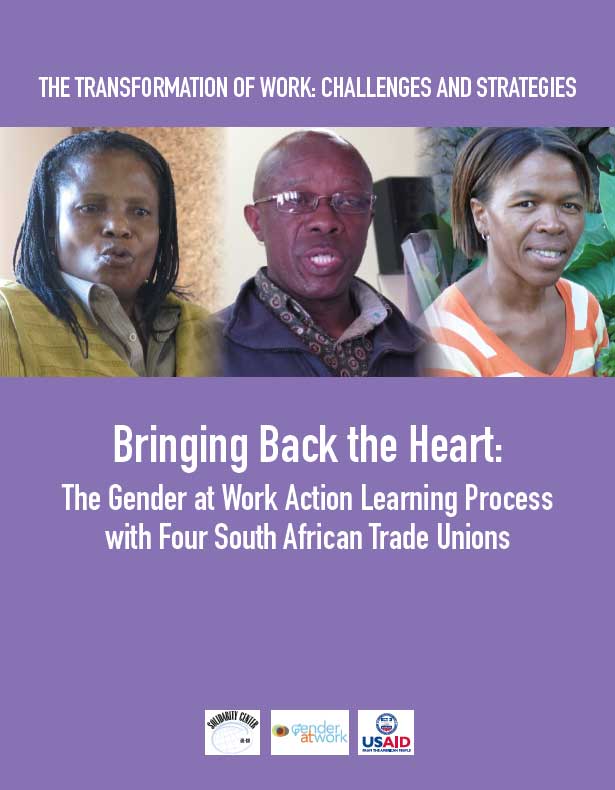
Bringing Back the Heart: The Gender at Work Action Learning Process with Four South African Unions (2013)
Four South African unions took part in a unique process with the South Africa Gender Action Learning Program and Labour Research Service to challenge male–dominated, hierarchical cultures. This report describes the step-by-step journey that led to more women joining...
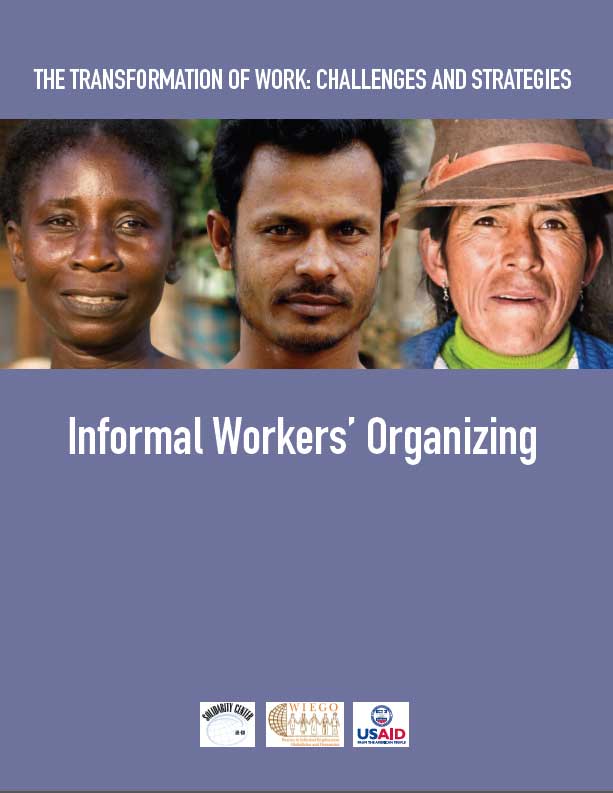
Informal Workers’ Organizing (WIEGO, 2013)
In overviewing self-organizing among such informal economy workers as waste pickers, domestic workers and construction workers, this report finds the lines are increasingly blurred between jobs in the formal and informal economies. This Solidarity Center report is...
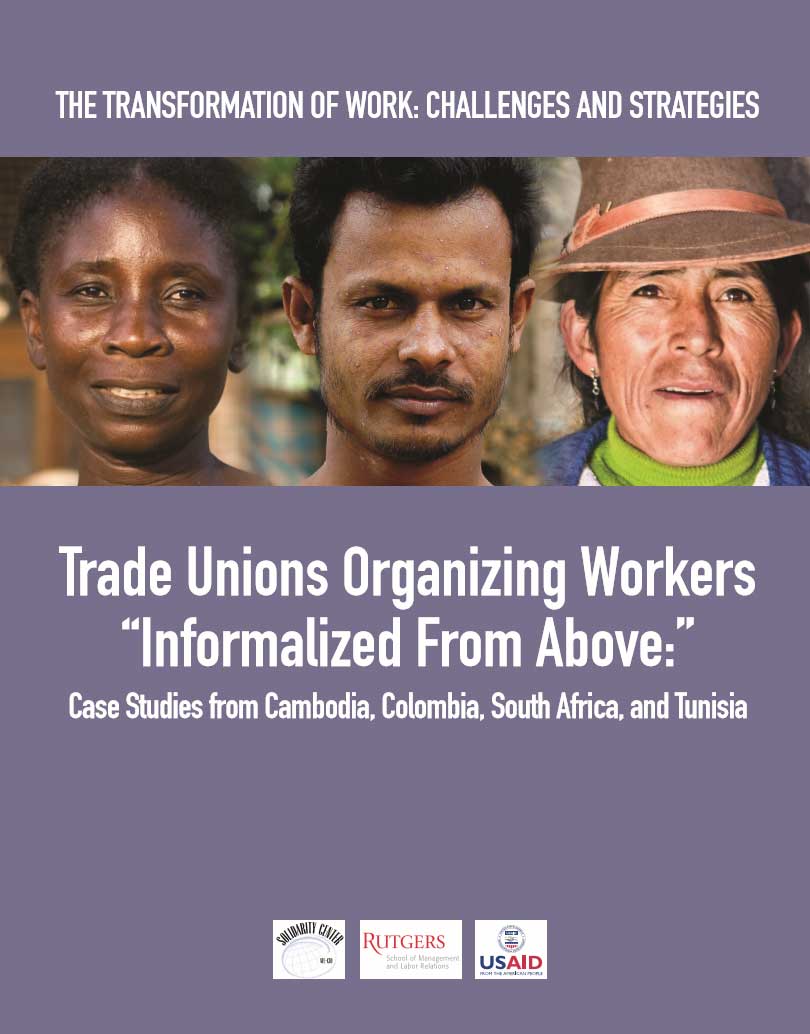
Trade Unions Organizing Workers “Informalized from Above”: Case Studies from Cambodia, Colombia, South Africa and Tunisia (Rutgers, 2013)
Four case studies examine successful union organizing among workers whose jobs have been privatized, outsourced or contracted out. This Solidarity Center report is part of a multiyear research project, funded by the U.S. Agency forInternational Development, to study...
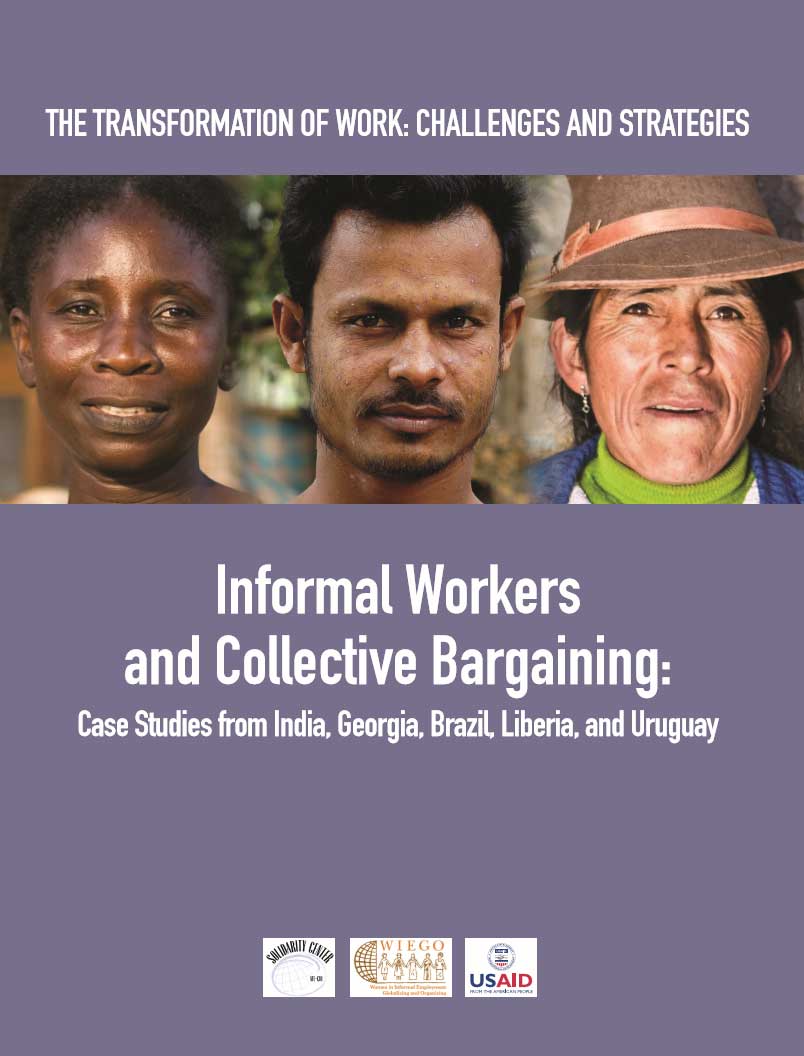
Informal Workers and Collective Bargaining: Case Studies from India, Georgia, Brazil, Liberia and Uruguay (WIEGO, 2013)
This report details a set of case studies on collective bargaining by informal workers in four different countries: Waste pickers in Minas Gerais state in Brazil, beedi workers in India, Georgia minibus taxi workers and street vendors in Monrovia, Liberia. The study...
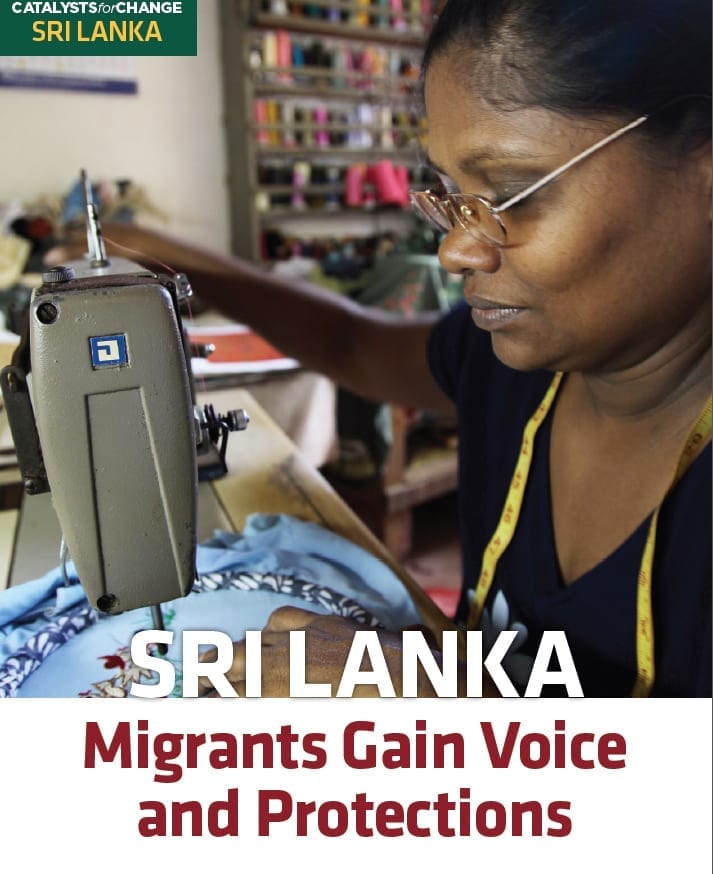
SRI LANKA: Migrants Gain Voice and Protections (2013)
The Migrant Services Center, a Solidarity Center partner, is assisting migrant workers and their families in Sri Lanka while championing structural change through legislative and governmental processes, and offers a model for other labor and worker rights...
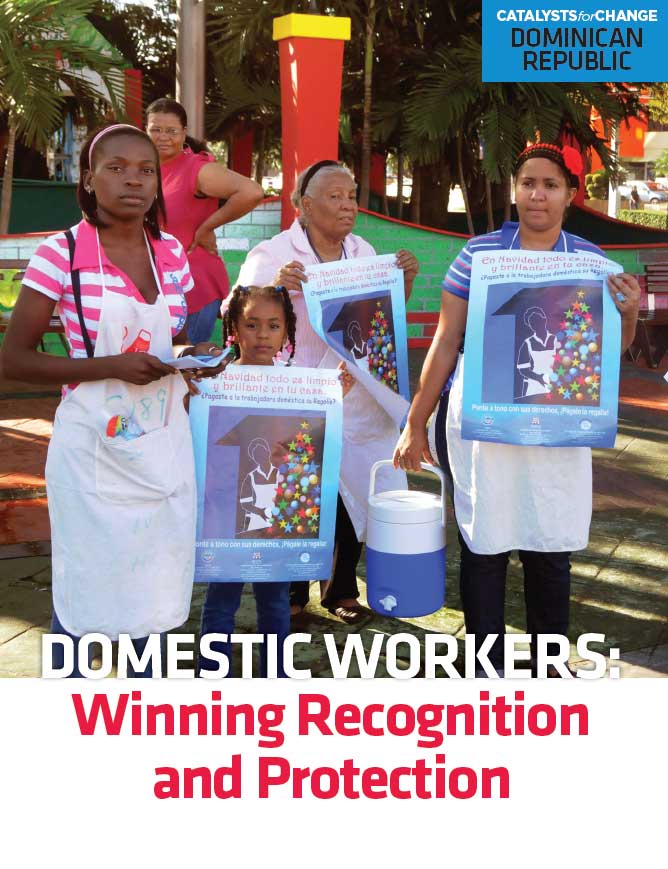
DOMESTIC WORKERS: Winning Recognition and Protection (2013)
Many domestic workers around the world are vulnerable to exploitation and not recognized by national labor laws. But in the Dominican Republic, domestic workers have campaigned to make gains over the last two decades—and a new Solidarity Center report shows how....

